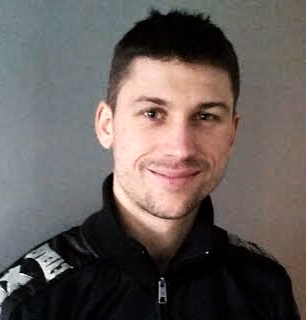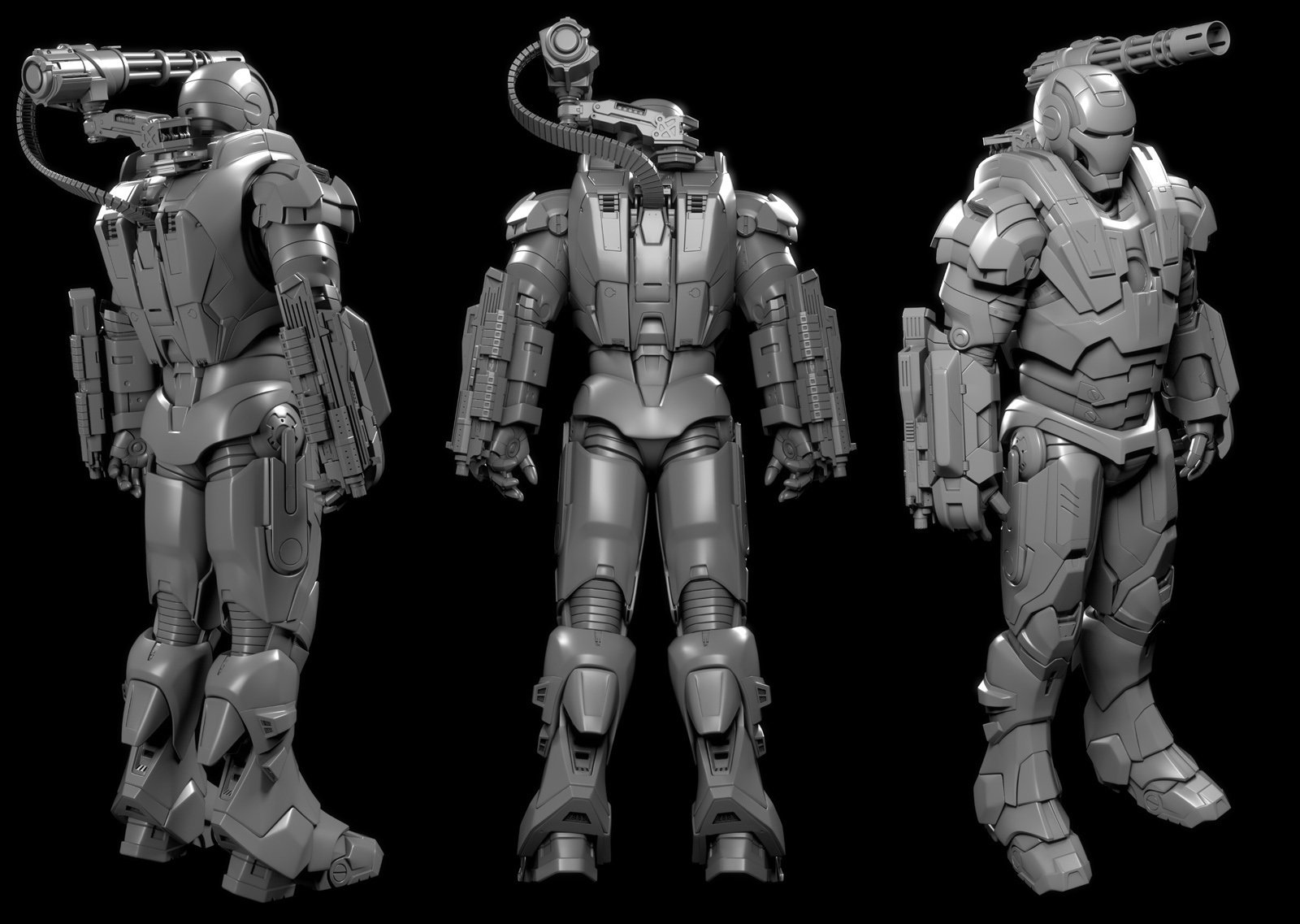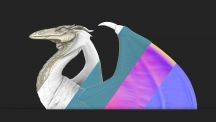 I am an Australian CGI artist living in Sydney. I discovered 3D while on a work experience program during high school. My dad hooked me up with an opportunity at Jumbana, an Australian design firm. After 2 weeks of working with one of the head guys there, I was hooked. 3D quickly became my main focus in life. My first official job came at 17 when I got a position at Fuel International, a leading TVC and VFX post-production studio. After two years I moved on to the New Zealand studio Light Farm, where I developed shading and lighting skills. From there I travelled back home to Australia and did some freelance stuff while taking a break from the industry. Finally after a year I got back into a studio role at Cream Studios, which is where I started my own tutorial business on the side. I knew after a couple of months that I would have to leave my job and work on the business full time, so that is exactly what I did!
I am an Australian CGI artist living in Sydney. I discovered 3D while on a work experience program during high school. My dad hooked me up with an opportunity at Jumbana, an Australian design firm. After 2 weeks of working with one of the head guys there, I was hooked. 3D quickly became my main focus in life. My first official job came at 17 when I got a position at Fuel International, a leading TVC and VFX post-production studio. After two years I moved on to the New Zealand studio Light Farm, where I developed shading and lighting skills. From there I travelled back home to Australia and did some freelance stuff while taking a break from the industry. Finally after a year I got back into a studio role at Cream Studios, which is where I started my own tutorial business on the side. I knew after a couple of months that I would have to leave my job and work on the business full time, so that is exactly what I did!
Grant Warwick's Links:
Website: www.grantwarwick.net
Facebook: https://www.facebook.com/masteringcgi
How could you briefly describe what you currently do as a CG artist? Are you freelancing or maybe you work for some company? What projects are you working on now?
Currently all of my time and focus is going into my online training school, Mastering CGI. What was only ever meant to be a part-time job has turned into a fully fledged training business that is growing each day. Our goal is to have 5000 students across both of the courses by the end of the year. As we pick up momentum and gain more exposure artists are slowly realising that my course is unique in that I don't hide any secrets. I lay it all out on the table and there is something to learn for everyone. We currently have two courses Mastering V-Ray and Mastering Hard Surface. (Both of them are available also in Evermotion shop - editors note).

What part of CG design do you like the most (and why)? Is there anything in your daily CG workflow that you don't like?
I never thought I would say this, but I enjoy teaching CG design more than being an artist myself. It gives me a great sense of accomplishment when I receive work from my students on a daily basis, some of which are now producing work of an amazing calibre. This has given me enormous motivation to keep on improving the way I teach. My biggest challenge as an artist so far has been to break down everything I've learned throughout my career and articulate it in a way that students find easily accessible. I can honestly say there is not a single thing I'm disliking about my workflow at the moment. I'm extremely confident I've figured out the solution to teaching advanced CGI topics and right now all I'm looking for is more time to keep progressing down the path I'm heading.
Click on image to enlarge
Is 3DS Max still your primary software? How long do you use it? Does it suit you or maybe you are considering to change 3d soft? What other software do you use and for what purposes?
3dsMax is definitely still my primary software, but I am also looking into Modo as a long term alternative. Anybody who's worked with me knows I have a love/hate relationship with 3dsMax and it's because the developers just don't care about improving the software anymore. I love that Max is the best modeling application out there however it's really quite sad how Autodesk has adopted a development pipeline that simply involves buying out software from other developers to tack on. It's left Max very unstable in parts and we're a decade overdue for some serious design changes.
Since creating the Mastering V-Ray course I have been approached by Luxology. They have given me the opportunity to provide personalised feedback into the modeling and shading pipeline. Unfortunately due to time constraints I haven't had too much input, but I am sure I will in the future. The Luxology guys are really passionate about it's future and only good things can come from that.
Do you use plugins? If yes - please, tell us which are your favorite and why.
Aside from V-Ray, Forest Pack is my favorite plugin and probably the most powerful tool that can be used in production daily. Seriously, I can't stress enough how crucial this plugin is to any studio. A bizarre amount of jobs in my folio were fully dependent on it although I have since figured out that subtle uses are where it really shines. Things like scattering dust particles over wooden floorboards or making icicles on ice cream give print res work that final detailed edge that makes people question if what they are seeing is real.
Click on image to enlarge
You are well known as a great modeling artist, but I still dare to ask - do you use stock 3d models in your projects? (like those from Evermotion, other companies or popular cg marketplaces)?
Companies I have worked at have always purchased Evermotion and Turbosquid content. As much as we try to limit the use of those resources there has definitely been times where you guys have saved our asses hours before deadline. Once upon a time I had a really negative view towards stock models and assets but you know what, after years of RSI pain and overworking myself it really can be a blessing to stop being stubborn and accept there are shortcuts available that don’t compromise the quality of your work.
When you decided that you will make "Mastering V-Ray" course? What was the origin of this idea?
Throughout my career I have been extremely disappointed with the lack of knowledge out there on how to actually understand V-Ray on a technical level for use in production. I'm talking cold hard facts taken either from work experience or from Chaos Group themselves. Where was it? It didn't exist and there was only a few guys on the forums who really understood what I was talking about when I explained my method for optimizing scenes or my process for creating realistic materials. That’s not to say there aren’t artists out there who understand it better than me, they just weren't creating courses that revealed all their industry experience. There are bits and pieces here and there but I wanted to see something truly concrete and proven.
So I started a thread on the Chaos Group forums requesting material ideas to be included in the course and before I knew it, the thread became the most discussed and viewed topic in the forum’s 10+ year history. When you see a reaction like that you know you're onto a good thing so I started to take the whole project seriously. A few months later I was ready to launch the pre-sale to gauge if it was a profitable enough idea to do it full time. 100 spots filled up in the first weekend and then it really started to hit me. There were encouraging emails coming from artists at the best studios in the world. So I began working after hours on content and ideas and a short-while later I'd refined and recorded the first lesson enough to be completely confident it was a game changer.
The reaction I got from my subscribers after they watched the first lesson of Mastering V-Ray confirmed my theory. 90% of the feedback was from people shocked to finally understand what was going on behind the scenes of V-Ray and how changing different settings affected either render time or quality. Much to their dismay, some guys with 10+ years experience and working at the best studios in the world really had no clue and I understood that embarrassment and frustration more than anybody. I honestly spent my entire career with zero technical idea of what was going on. Every job in my folio took four times longer to render than what it should have without the knowledge of V-Ray that I have now. Using my technique makes an incredible difference, almost straight away. That’s why top artists out there simply can't ignore this new found knowledge.
Click on image to enlarge
There are many V-Ray courses online. What decided that yours become one of the most popular? Are you surprised that "V-Ray Masterclass" is so popular or have you expected this?
I think the popularity of my V-Ray course comes from it's honesty and originality. I have extensive knowledge of the industry which made it easier to market to studios. Once top end studios started jumping on board it snowballed from there. My aspirations to become an amateur boxer have made sure that I no longer have an ego for CGI and I really think people are connecting with that concept when they watch my lessons. I don't leave out any important details and my primary goal is to see things from the subscribers viewpoint, which shadows my own memories from when I was learning. I try to remember those exact moments where I ran into walls and had to spend days figuring things out on the forums or in manuals; then I create content based around solutions to those topics. I have compiled 10 years of my knowledge into a 20 hour course that makes the subject matter clear and concise so it can actually be followed by my subscribers.
What makes it unique in your opinion?
It's honest. I have nothing to hide. I've done my research, I know what I'm teaching will benefit users because I've extracted it from techniques I evolved while working on tight deadlines with harsh quality control. I have completed jobs in ridiculous timelines and briefs, but it made me understand how to be a print artist and as a result every lesson comes straight from production experience.
Can you tell us what to expect in the next lessons? When do you plan to end it?
I've only just completed the roadmap for upcoming lessons and you can find that information here. But for those too lazy to follow the link there will be 12 lessons all up.
Lesson 12 is going to be a huge finale lesson which will tie into my next course Mastering Lighting. A lot of the questions I get from subscribers are if the course is going to cotinue next year and the answer at this stage is that it won’t. That being said the finale will be big, so stay tuned for that...
Click on image to enlarge
How long have you studied V-Ray? Did you learn it all by yourself, by watching online courses, some experts, etc.? Your approach to materials is very detailed - how long did it take to develop this workflow?
I have known V-Ray for 10 years, worked with it for 7 and understood it for less than 10 months. I'm fully self taught however working with co-workers has also been an extremely rewarding experience. I've been tinkering with materials for about 5 years. It required reading many Siggraph papers, talking with other artists from ILM and Weta such as Sam Cole. These guys were doing the best work in the industry - truly ridiculous stuff, and I just wanted to match their quality of work without signing my life away.
Creating custom complex BRDF's inside V-Ray was an evolutionary process that stemmed from trying to replicate Iron Man materials. Because I was so passionate about the subject matter, I invested a huge amount of time into researching the science behind materials and the epiphany moment occurred when I realized that not only does reflectance change based on the angle we view materials but glossiness does too! At that point in time the only way I could achieve that effect was by blending 3 materials together using falloff maps.
On top of this, I needed a way for creating my own custom reflectance curves as the scientific data available at refractiveindex.info is more complex than what is currently available in the standard V-Ray shader. With the help of John O'Connell I discovered that it was possible to use the 3dsMax curve editor to accomplish that task. It actually ended up becoming far more reliable than I ever imagined and there are now scripts created for Cinema 4D and Maya replicating the workflow.
To this day I'm still refining and tweaking and I don't think I'll ever stop so I guess you could say the process has taken many years now. I owe a lot of thanks to artists such as Noah White and John O'Connell who played a huge role in breaking through those technical boundaries.
Click on image to enlarge
You said once that learning from online courses is better than attending CG school. In 2014 we have a huge amount of free (and payed) tutorial videos that flood YouTube and Vimeo, some of them are just a waste of time. Where beginners should look for quality courses?
It's really unfortunate how little quality CGI training content there is to learn from on the web these days. There has always been handfuls of amazing work but as you say, the majority of tutorials are useless, boring and repeat the same old topics that have been floating around forever. I'd personally recommend beginners rely on themselves more than anything else. Don't blindly trust every tutorial you watch, including mine! Do the research yourselves and at the bare minimum, make sure the instructors training is based on production experience. When you do start to apply for jobs, be realistic. You will know if your work is good enough to make it into the industry because you will look at it and feel confident. Too many times I've seen job applications or resumes filled with work that is so far from being production ready it's a joke and the artist should know better. The only reason I'm being so harsh here is because I'm that harsh on myself. Your time is far too important so put your head down and dig through the pain.
Do you browse other artists' works? What mistakes do you find the most annoying and/or most common? What advice could you give for people that want to become better in CG?
I still casually browse some of my favorite artists work but back in the day I was very competitive. I wanted to be the best so I'd critique others art on forums, offer advice and also gain inspiration. I strongly believe the CGI industry has become too passive and it's only getting worse. It's almost a sin to call another artists work bad and I feel like a lot of beginners are overly sensitive to critique.
If you want to be the best you're going to have to take a hell of a lot of critique. Just remember, if people are paying enough attention to your work to offer you advice, be grateful, not spiteful.
Click on image to enlarge
Are there any artists that inspire you? What inspires you the most?
Every lead artist currently working at Weta. The work on Rise of the Planet of the Apes knocked me out cold and seeing so many old workmates in the credits made me feel really nostalgic! The VFX industry is always going to produce the best work and even though that can be attributed to artists with a much more specialized skill set the results impress me just as much as the pyramids or space flight. An old workmate, Sam Cole is a lead compositor there and as he once said to me “I'd rather be part of a team at the pinnacle than an individual getting 90% of the way there.” That always stuck with me and I respect that sacrifice.

What do you think of V-Ray? How could you compare it to other renderers? Do you use other renderers? What do you like / don't like in V-Ray?
V-Ray is the king in my opinion. There aren't many guys like Vlado Koylazov (co-founder and head of software development at Chaos Group - editor's note) in the world and the work he and the Chaos Group team have done coding V-Ray over the past 15 years has defined a large portion of my life. I'll always owe them one for providing me the opportunity to realise my imagination. But just because I'm a V-Ray fanboy doesn't mean I don't use other renderers. Octane Render is probably my favorite but it's just not quite there yet for full on production use so it's sitting in the backseat constantly annoying me with "Are we there yet?". What I love about V-Ray is the team are always strongly listening to community feedback. Chaos Group aren't afraid to fail and they will implement features they personally don't believe in just to please customers.
At the moment I really hate how long it's taking to have specular layers added in as a feature. On my Mastering V-Ray course there is a huge limitation at the moment that requires using blend materials to create custom BRDF's. Instead of adding only the specular and reflection layers to calculate, we currently have to calculate an entirely different shader and it's very slow this way. Cinema 4D guys already have the feature and universally use it so why is it taking so long to be added to Max. If you're listening Vlado, please answer my prayers!
Click on image to enlarge
You are launched another course "Mastering Hard Surface". What will we find in it?
I'm actually already 4 lessons into Mastering Hard Surface and you can subscribe on my website right now! The course started on 1 June and ends on 31 May 2015. Subscribers gain access to all current and future lessons so there is no issue subscribing after the course has started.
Mastering Hard Surface is my attempt to teach others the exact step-by-step process of modeling. From first opening Max all the way through to producing high quality assets that will get you hired anywhere in the world. The goal of the course is to have my students modeling at my standard by the end. Of course that will require tonnes of practice in between but with my course as ammo, students will improve at a much faster rate.
Click on image to enlarge
What are your plans for the future? Other video courses? Expanding your website? Or maybe some written publications (like for eg. Alex Roman did last year)?
Last week I put up some "Coming Soon" courses : https://grantwarwick.net/coming-soon. They will be out either later this year or early next year. We are welcoming other artists that fit our model to pitch us an idea on a course, however I am very wary of the content I am sharing with my students and I absolutely will not compromise on quality.
As for the long-term, I will be looking to create a teaching school, something very different to what is currently out there today. But that is still a long way away and for now I am happy doing what I am doing!
Click on image to enlarge
Thank you for an interview!
Visit Grant Warwick's sites:
Customer zone
Your special offers
Your orders
Edit account
Add project
Liked projects
View your artist profile



 I am an Australian CGI artist living in Sydney. I discovered 3D while on a work experience program during high school. My dad hooked me up with an opportunity at Jumbana, an Australian design firm. After 2 weeks of working with one of the head guys there, I was hooked. 3D quickly became my main focus in life. My first official job came at 17 when I got a position at Fuel International, a leading TVC and VFX post-production studio. After two years I moved on to the New Zealand studio Light Farm, where I developed shading and lighting skills. From there I travelled back home to Australia and did some freelance stuff while taking a break from the industry. Finally after a year I got back into a studio role at Cream Studios, which is where I started my own tutorial business on the side. I knew after a couple of months that I would have to leave my job and work on the business full time, so that is exactly what I did!
I am an Australian CGI artist living in Sydney. I discovered 3D while on a work experience program during high school. My dad hooked me up with an opportunity at Jumbana, an Australian design firm. After 2 weeks of working with one of the head guys there, I was hooked. 3D quickly became my main focus in life. My first official job came at 17 when I got a position at Fuel International, a leading TVC and VFX post-production studio. After two years I moved on to the New Zealand studio Light Farm, where I developed shading and lighting skills. From there I travelled back home to Australia and did some freelance stuff while taking a break from the industry. Finally after a year I got back into a studio role at Cream Studios, which is where I started my own tutorial business on the side. I knew after a couple of months that I would have to leave my job and work on the business full time, so that is exactly what I did!



























COMMENTS